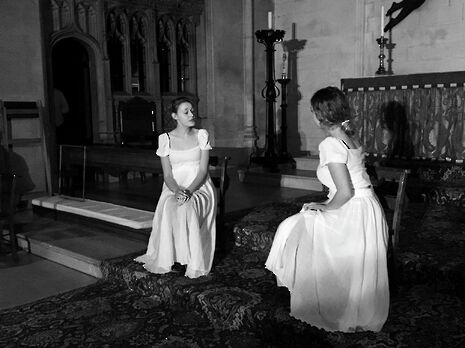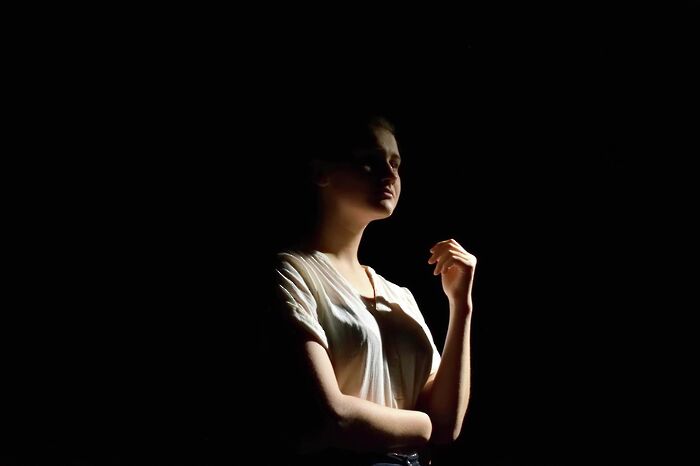Why it’s okay not to read the book first
Vee Tames explores why we need adaptations – and how they can be gloriously enriching

My way into literature and probably my English degree was through adaptation. From BBC period drama boxsets to annual trips as a child to watch the latest Harry Potter film, adaptations provided an excuse to relive a narrative in a different form. And their commercial and critical success is simply unparalleled.
According to new research by the Publishers Association conducted in July of this year, theatre productions adapted from books and films sell nearly five times more tickets than original scripts. Famous examples that have graced the West End include musicals such as ‘Legally Blonde’, ‘War Horse’, ‘Oliver Twist’, ‘Phantom of the Opera’ as well as plays like ‘The Woman in Black’ and ‘The 39 Steps’. According to the report, which breaks down data from shows produced in 2016, adaptations took, on average, three-and-a-half times more at the box office and sold 4.8 times as many tickets as original productions.
"I feel adaptations are often the better way to go if you have literary commitment issues"
The report found that, in 2016, an original play achieved an average revenue of £41,000, while a play adapted from a literary source averaged nearly three times that: £115,000. More than 30% of the West End shows that have run for more than 3,000 performances use books as their original source material. Meanwhile, of the West End’s four longest-running productions, ‘Les Miserables’, ‘The Phantom of the Opera’ and ‘The Woman in Black’ are all based on books, while the longest runner – Agatha Christie’s ‘The Mousetrap’ – started life as a radio play and is drawn from a subsequent short story. However, it is the world of screen where adaptation has its firmest grip. Book adaptations compared to original scripts garner on average 44% more box office revenue and 58% higher average viewership. From 1930 – 2016, Adaptations have also won 42 out of a possible 58 awards for Best Film.
These figures don’t surprise me in the least. There are instances where I prefer the adaptations of a writer’s work than the original: Dickens comes to mind. His characters are startling original and unforgettable even to those who haven’t personally read any of his novels, but the serial format of his works often leave plot holes the size of Dartmouth tunnel. In this case, adaptation for stage and screen provides the means of giving his works a dramaturgical MOT. And he is not the only culprit in this. I feel adaptations are often the better way to go if you have literary commitment issues. Don’t have time to plough through ‘Middlemarch’, ‘War and Peace’, ‘The Count of Monte Cristo’ or any high-brow doorstop of your choice? There is undoubtedly a film or TV adaptation for you to get your teeth into.
"frankly, adaptation should be right near the top of any writer’s bucket list"
With an original script, your audience doesn’t have any familiarity with the material or even the writer so you are effectively starting from ground zero. Perhaps this is the reason why Dame Emma Thompson, fellow Newnhamite and queen of adaptation, achieved screenwriting success and an Oscar on the side through choosing to adapt ‘Sense and Sensibility’ rather than write an original screenplay. It should be noted when she initially began adapting the novel, her first draft spanned over 600 pages. It took a subsequent 27 rewrites to get it into a state ready for filming. Her subsequent writing projects – ‘Bridget Jones’s Baby’, ‘Effie Gray’, ‘Wit’, and the two ‘Nanny McPhee’ films have also relied on previous source material.
With all this mind, why is it that adaptation is sometimes viewed within the writing community and indeed among audiences and readers as a ‘safe’ option? With a plot, characters and world already in place, it can appear nothing more than a simple transposition for a different medium. But do not be fooled. As Maddy Trepanier, the writer of the Mighty Player’s upcoming adaptation of ‘Northanger Abbey’ would tell you, I am sure, a good adaptation is not simply a copy-and-paste affair. It is a delicate balancing act between retaining the skeleton and essence of the original narrative whilst shaping it for a new way of telling its story through an entirely different medium. Often it is rewriting from prose to dialogue and then rewriting again from dialogue on the page to the stage or screen. Frankly, adaptation should be right near the top of any writer’s bucket list. And why not? It is an opportunity to exercise your dramaturgical muscles in a way that you couldn’t elsewhere.
Adaptation at its best is a literary echo, retaining features of its original narrative but never replicating it. Nor should it. Indeed, so long as the essence of the story is preserved everything else is up for grabs. However, whatever you do, don’t stop reading the books – any reader gets at least a 10-year headstart on any future Netflix series or BBC primetime dramas. Trust me.
 News / Judge Business School advisor resigns over Epstein and Andrew links18 February 2026
News / Judge Business School advisor resigns over Epstein and Andrew links18 February 2026 News / Gov grants £36m to Cambridge supercomputer17 February 2026
News / Gov grants £36m to Cambridge supercomputer17 February 2026 News / Hundreds of Cambridge academics demand vote on fate of vet course20 February 2026
News / Hundreds of Cambridge academics demand vote on fate of vet course20 February 2026 News / CUCA members attend Reform rally in London20 February 2026
News / CUCA members attend Reform rally in London20 February 2026 News / Union speakers condemn ‘hateful’ Katie Hopkins speech14 February 2026
News / Union speakers condemn ‘hateful’ Katie Hopkins speech14 February 2026










